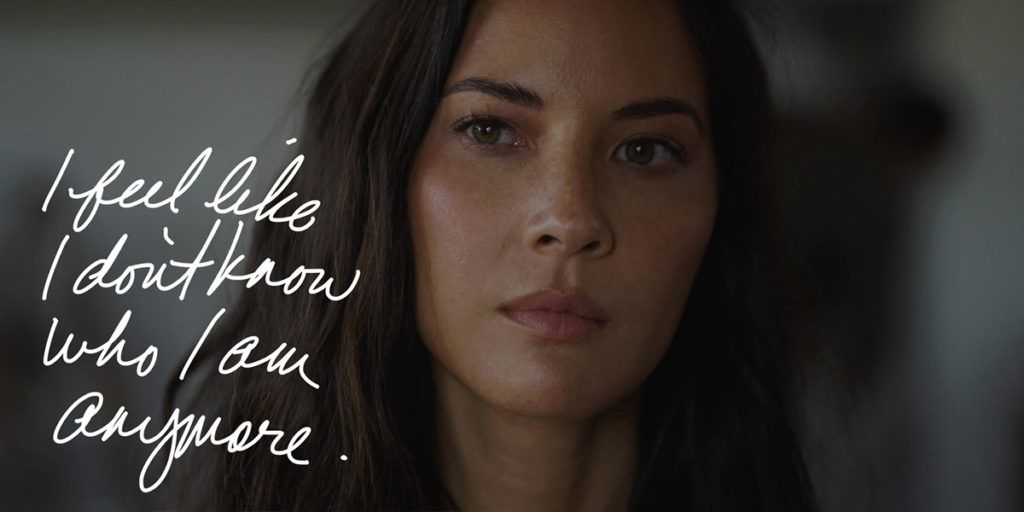Violet

Image courtesy TIFF.
I often wonder if fragile self-esteem comes standard with the experience of living as a woman in a male-dominated, consumer-oriented, media-saturated society. Whether it be narrow, Eurocentric beauty standards, or success that comes with the caveat of imposter syndrome, the omnipresent static noise telling us we don’t measure up feels inescapable.
AppleTV+’s limited series, Physical, depicts a sharp and objectively gorgeous woman (Rose Byrne) burdened by an inner monologue as constant as it is cruel. She is deeply, existentially unhappy despite the privilege of her middle class life, every decision picked apart by her own subconscious to the point where it hampers her ability to function. The show features a constant barrage of narration, voiced by Byrne—jarring and uncomfortable, but absolutely necessary for communicating the depth of the character’s almost compulsive self-abuse.
In Justine Bateman’s VIOLET, the main protagonist (Olivia Munn) experiences a running commentary—similarly vicious, yet in a departure from Physical, Justin Theroux voices the harasser in her head. No doubt intended as a manifestation of social pressures exerted within a patriarchal system, it unnerves, as if the criticism of every man who ever belittled her remains behind and refuses to concede control.
Violet is stunning by any standard, and works in an industry that almost everyone (including her estranged family) sees as glamorous and exciting. She’s an executive at a relatively minor film studio, in charge of picking projects and determining the strategies employed to promote them. Almost always the only woman in a sea of white male peers, she’s programmed herself to acquiesce to their microaggressions—hence the idiomatic name and title—and maintain the illusion of placid strength.
Munn brings a raw vulnerability to Violet; it’s easy to empathize with her self-doubt and limitations. As she tells her best friend, Lila (Erica Ash), debilitating fear hampers her every decision. She always errs on the side of a predictable outcome that lands safely inside the status quo. Any instance she contemplates taking the road less traveled, she’s inundated with intrusive thoughts in the form of shocking imagery or screaming derision. It’s exhaustive and jarring, but also a perfect cinematic representation of that inner turmoil.
As the film follows Violet, we see glimpses of her own internal dialogue, appearing as hand-written notes superimposed over scenes, often at odds with the voice’s barrage of negativity. They take on a more forceful self-awareness as events progress and Violet’s conscious effort to fight back against her more harmful tendencies. It’s a bold choice by Bateman that could’ve easily backfired (the painfully expository texts-as-text used in Drake Doremus’ ENDINGS, BEGINNINGS comes to mind), yet adds an additional layer of characterization that usually comes in the form of audible narration. In an age of formulaic blockbusters and endless franchise fare, it’s delightfully refreshing to watch a film that takes actual risks with medium’s potential. I look forward to seeing how Bateman evolves as a director.